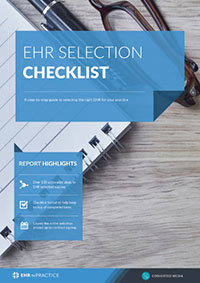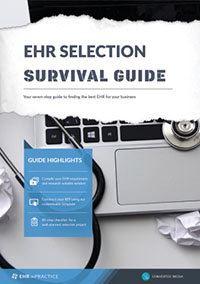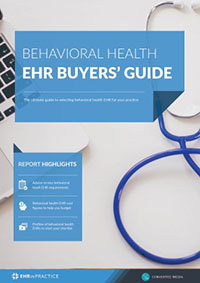The pros and cons of a standalone EHR system
There are many reputable EHR systems on the market today, offering one system for clinical documentation, e-prescribing, billing, practice management, outcomes analysis, etc. While many practices find that a standalone EHR system best meets their practice needs, it may not be best suited for every medical practice. Here are common advantages and disadvantages of a standalone EHR system.
Pros of comprehensive, standalone EHR systems
Your databases will be integrated and accessible
A standalone system will give you the freedom of complete access to all facets of your practice and business.
You will be able to access information from patient demographics, prescribing, billing, practice administration and even patient communication portals. You will not need to contact outside vendors for answers, but will have all the information easily accessible through one portal.
GET EHR RESEARCH & KNOWLEDGE RIGHT TO YOUR INBOX
Covering the key issues faced by businesses selecting and implementing EHR.
Your staff will only have to master one system
With a standalone system, the administrative, clerical, clinical and support staff only have to learn and master the utilization of one system.
It can be very frustrating for a busy clinician to remember log-in information and operation of multiple systems to complete a patient interaction (for example one system for an encounter note and another system for electronic prescribing). One system can create greater user buy in and greater productivity.
Meaningful Use attestation will be simpler
With a fully integrated system, you will have better tools to ensure patient safety and meet regulatory CMS conditions. Most integrated systems will create a list of ordered medications, procedures and tests, compiling all history into a searchable database allowing your clinical staff to view any potential drug interactions or missed prescription refills.
In addition, standalone EHR solutions are able to run system-wide reports to ensure that meaningful use criteria are met as well as any regulatory billing or claims processing codes.
Cons of comprehensive, standalone EHR systems
EHR does not provide a "best of breed" solution for every department
For example, it may be more beneficial to outsource your billing services to a well-known and well qualified third party billing company. Typically, these third party billers are up-to-date with all current guidelines, regulations and coding. In addition, they typically offer greater interpersonal contact and customer service.
The billing services that are offered with a standalone EHR system may not be specific to your insurance carriers, demographic or specialty. The same principles apply for other disciplines including practice management and e-prescriptions.
EHR systems don't come cheap
When utilizing a system that handles all facets of your practice, from patient scheduling, billing, e-prescribing etc., the cost may add up quickly - download our EHR pricing guide to find out exactly how quickly. You may be able to outsource some facets of your administrative operations for a better price with equal satisfaction.
Free white paper
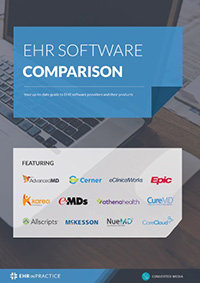
EHR Software Comparison
A hand-picked comparison of leading EHR software systems
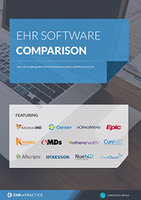
Featured white papers
Related articles
-

5 key stakeholders in your EHR selection
Learn about the individuals that, when consulted early and often, can make your EHR selection pro...
-

Top free EHR software systems
What open-source EHR is, and the top free EHR systems on the market
-

5 important areas of EHR training during implementation
Successful EHR implementation is not possible without crucial EHR training


